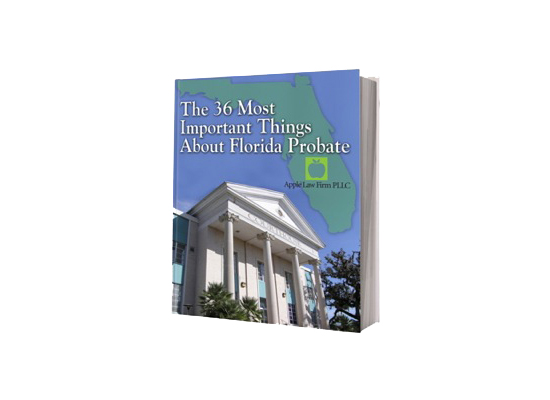LANDING SAFER
How Does a Land Trust Work in Florida?
A land trust is a legal agreement in which one party (the trustee) holds legal title to a property for the benefit of another party (the beneficiary). This form of ownership can offer numerous benefits including privacy, avoidance of probate, and potentially some protection from creditors. While land trusts can be used in many jurisdictions, they are particularly popular in the state of Florida due to specific statutes that govern their use and the ability to own property in other states.
Here’s a basic breakdown of how a land trust typically works in Florida:
- Creation of the Trust: The property owner (now the settlor) creates a trust agreement and transfers the property title to a trustee. The trustee can be an individual, a group of individuals, or a corporate entity. The trust agreement will name the beneficiaries of the trust, who are often the original property owners.
- Trustee’s Role: The trustee holds legal title to the property and has the power to manage the property as directed in the trust agreement. The trustee does not have beneficial ownership, meaning they cannot personally benefit from the property or its proceeds.
- Beneficiary’s Role: The beneficiaries retain beneficial ownership of the property. They have the right to use the property, receive income from the property, sell or mortgage their interest, and otherwise benefit from the property without holding legal title. The beneficiaries can control the actions of the trustee through the terms of the trust agreement.
- Privacy: One of the key advantages of a Florida land trust is privacy. The trust agreement is not a public document, and the beneficiaries of the trust do not need to be disclosed in public records. This can make it more difficult for creditors or litigants to discover the assets of the beneficiaries.
- Avoidance of Probate: Upon the death of a beneficiary, their interest in the trust can pass to their heirs without going through probate. This can make the transfer of ownership faster and less expensive than a traditional probate process.
- Liability Protection: Although Florida land trusts do not offer complete liability protection, they can potentially limit the exposure of beneficiaries to certain liabilities associated with the property. For example, if a lawsuit is filed related to the property, the legal title held by the trustee may insulate the beneficiaries to some degree.
- Homestead: Determine if you want to have your Florida Land Trust comply with the homestead requirements for additional protection or discounts on property taxes.
- Flexibility: The terms of the land trust can be modified as needed to meet the changing needs and goals of the beneficiaries.
Please note that the exact structure and benefits of a Florida land trust can vary based on the specific circumstances and the terms of the trust agreement. It’s always recommended to consult with a Florida Land Trust attorney to determin how a land trust would work for you in Florida and if there are better options given your specific goals and circumstances.
Here are some more specifics about how a Florida Land Trust works and advantages:
- Creating the Florida Land Trust Agreement: The Florida Land Trust agreement is the central document in a Florida land trust. This document outlines the roles of the trustee and the beneficiaries, the powers granted to the trustee, and the rights of the beneficiaries. It also includes provisions for what happens if a beneficiary dies or wants to sell their interest, and how disputes will be resolved.
- Choosing a Trustee: The trustee is usually a person or entity experienced in managing real estate. Some people choose to use a professional trustee, such as a law firm or a bank, while others may choose a trusted friend or family member. The trustee’s role is to hold legal title to the property and to manage it according to the instructions in the trust agreement.
- Beneficial Ownership: The beneficiaries of the trust are the ones who hold the beneficial ownership. They have the right to use and enjoy the property, and they’re the ones who benefit from any income the property generates. While the trustee holds legal title, the beneficiaries of the Florida Land Trust have the actual ownership interest.
- Privacy: One of the main advantages of a Florida land trust is privacy. Because the trust holds title to the property, the names of the beneficiaries are not a matter of public record. This can be a valuable asset protection strategy, as it can make it more difficult for creditors or potential litigants to discover the assets of the beneficiaries.
- Avoiding Probate: A Florida land trust can also help avoid the probate process. When a beneficiary dies, their interest in the trust can be passed on to their heirs without the need for probate, which can save time and money.
- Ease of Transfer: Transferring property that’s held in a land trust can be simpler than transferring property held in the traditional way. Because the trust holds title to the property, a beneficiary can sell their interest in the trust without needing to execute and record a new deed. Instead, they can simply assign their beneficial interest to the new owner.
- Liability: While the trustee of a Florida Land Trust holds legal title, it is generally not personally liable for obligations related to the property, except to the extent of the trust property in its possession. In other words, a trustee’s personal assets are typically not at risk. However, this doesn’t mean the trust or the beneficiaries are immune from liability related to the property or its use.
- Flexibility: Florida land trusts are very flexible. The terms of the trust agreement can be customized to fit the needs of the beneficiaries, and the agreement can be amended as needed over time.
Case law involving Florida Land trusts typically deal with issues such as:
- Beneficiary Liability: Courts have often been asked to determine whether beneficiaries can be held liable for obligations related to the property. In general, liability tends to rest with the trustee, but there are circumstances where beneficiaries may be held liable, particularly if they have been involved in the management of the property or if there has been fraudulent behavior.
- Creditor Claims that reach the land in a Florida Land Trust: If a beneficiary has creditors, the courts may need to decide whether and to what extent those creditors can reach the beneficiary’s interest in the trust. This can depend on a variety of factors, including the specific provisions of the trust agreement and the nature of the creditor’s claim.
- Validity of the Florida Land Trust: In some cases, courts may need to determine whether a land trust is valid, particularly if there are questions about how it was established or if its terms violate any laws or public policy considerations.
Please note that while Florida land trusts can provide several benefits, they can also be complex and may not be the best solution for everyone. It’s always a good idea to consult with a knowledgeable Florida Land Trust Attorney or call us at 904-685-1200 to discuss setting up a Florida Land Trust.












